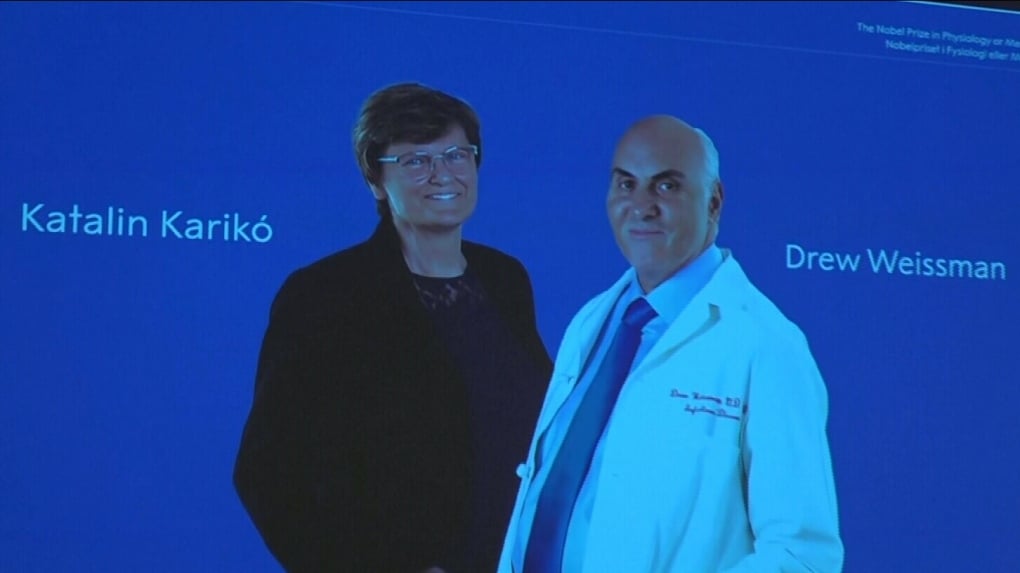The Nobel Prize in Medicine has been awarded to Professors Katalin Kariko and Drew Weissman for their groundbreaking work in developing the mRNA COVID-19 vaccines.
This technology, which was experimental prior to the pandemic, has since been administered to millions worldwide, providing protection against severe COVID-19 cases. The Nobel Prize committee recognised their contributions to the rapid development of vaccines during a time of unprecedented global health crisis.
Traditional vaccines have historically used weakened or inactivated forms of the virus or bacterium they target. In contrast, mRNA vaccines take a novel approach. They contain genetic instructions for producing a specific viral protein, which, when injected into the body, prompts our cells to generate this protein.
The immune system identifies these foreign proteins, launching an attack and acquiring the knowledge to combat the actual virus in future encounters. This technology’s remarkable flexibility enables the swift development of vaccines for various diseases, including cancer, as long as the correct genetic instructions are known.
Professors Kariko and Weissman played pivotal roles in advancing mRNA vaccine technology. Their work harnessed the natural function of RNA in converting genetic instructions from DNA into the proteins essential for our bodies.
Overcoming challenges, they refined the technology to produce significant amounts of the target protein without causing excessive inflammation, a critical step in transitioning from animal experiments to human vaccine development.
The mRNA vaccines developed during the Covid-19 pandemic, such as Moderna and Pfizer/BioNTech, represent a triumph of scientific innovation. These vaccines have been a crucial tool in combating the virus’s spread, demonstrating the potential of mRNA technology to revolutionise vaccine development.
Beyond COVID-19, mRNA technology holds promise for addressing other diseases, including cancer. Researchers are exploring methods to instruct a patient’s immune system to combat their specific cancer by analyzing tumour proteins unique to malignant cells and creating vaccines that target these abnormalities.
Professors Kariko and Weissman’s pioneering work not only contributed to one of the most significant scientific breakthroughs of our time but also exemplified the potential of mRNA technology to transform medicine. Today, they stand as laureates of the Nobel Prize in Medicine, recognised for their outstanding achievements in advancing human health.
Both laureates, now in their respective academic roles, have left an indelible mark on the field of mRNA research and vaccine development, shaping the future of healthcare.

